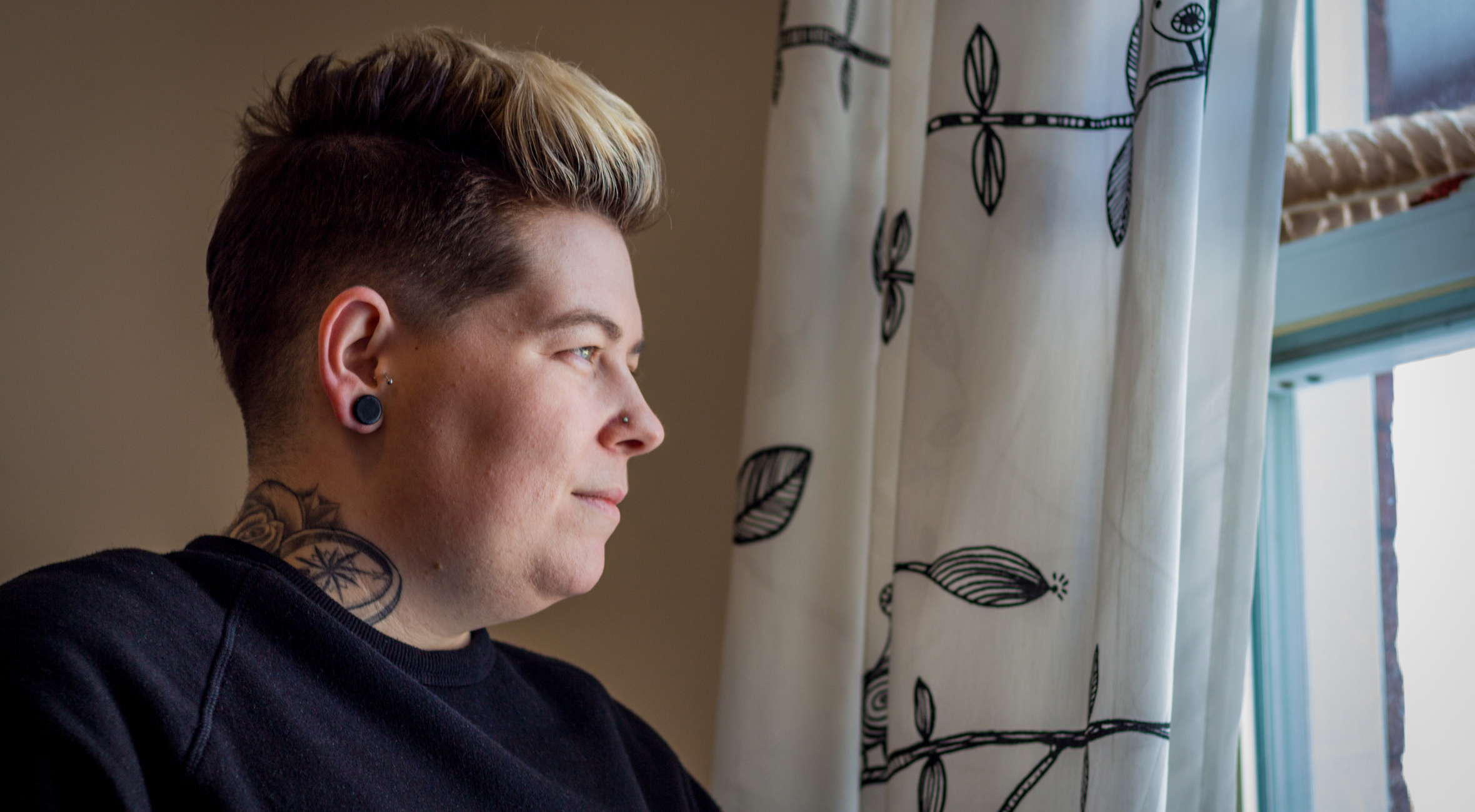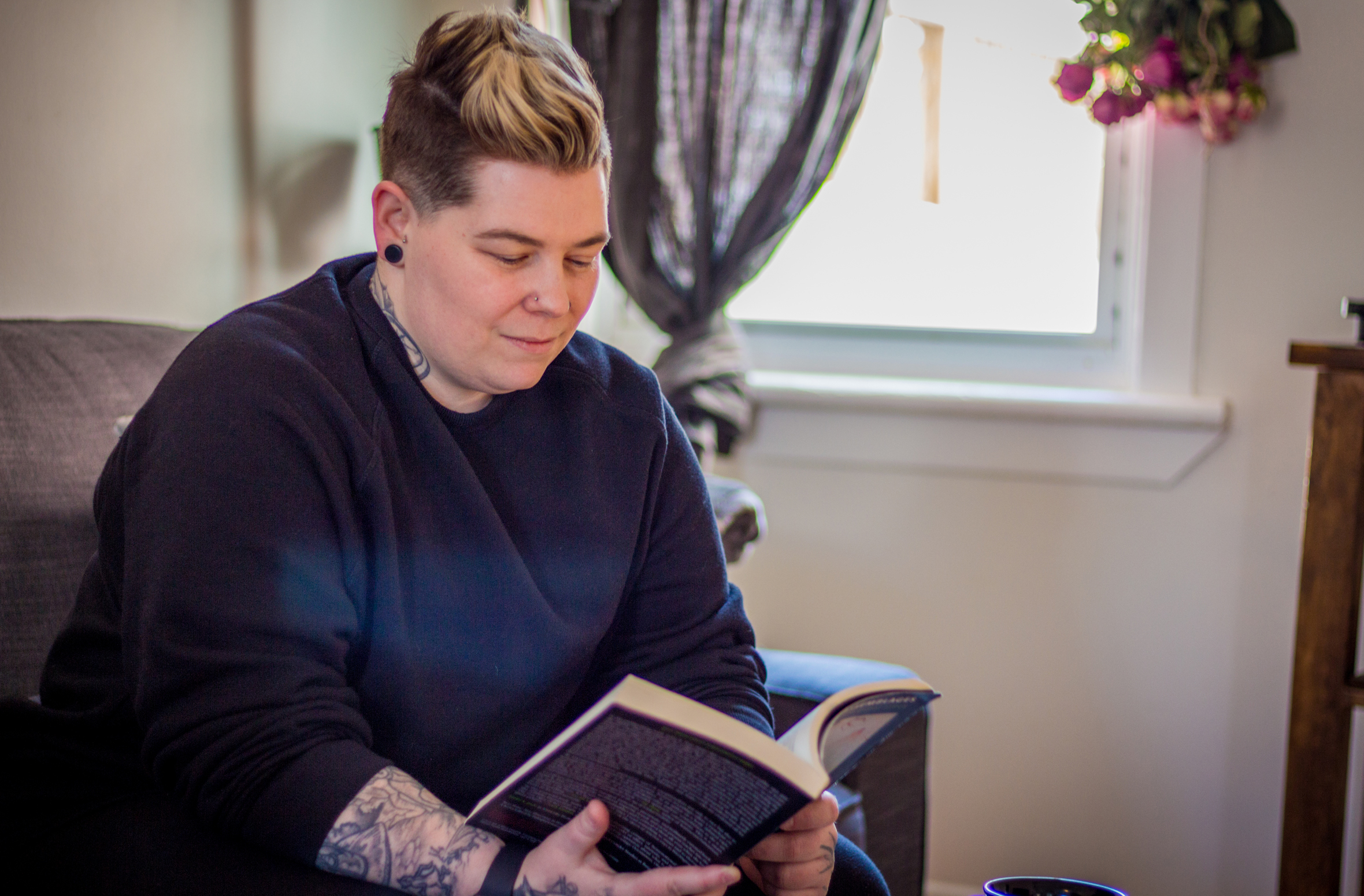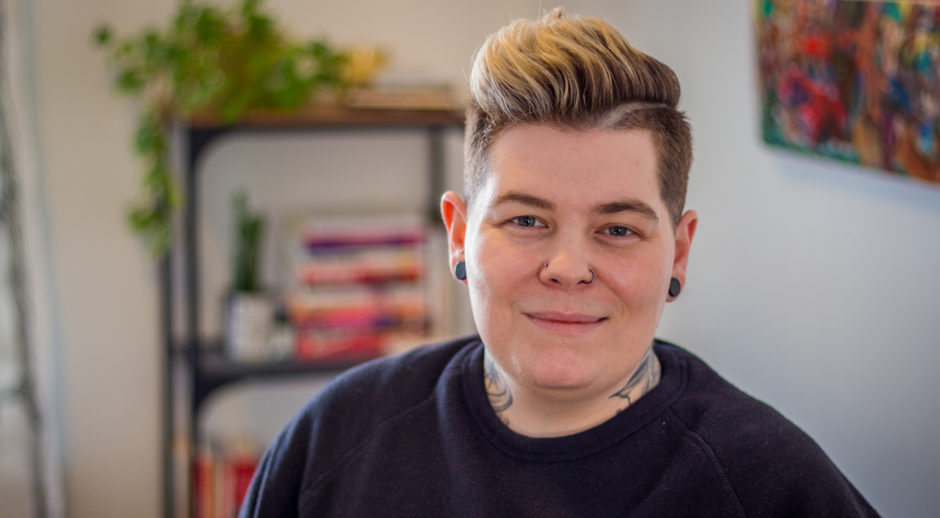March 22, 2019
When the sexual assault Dillon Black says they endured in a dark parking lot at Carleton University in the early 2000s wasn't believed, their life changed.
Black was discouraged, lost a scholarship, quit school, and didn't return for years.
"That was such a huge turning point for me in the sense that not only had this significant thing happened, but then when you're going to these professional people and people that you thought should support you, they just actually didn't."
But the story didn't end there.
Black, 32, met a group of women who were doing advocacy work at Carleton in the midst of a high-profile sexual assault case. They raised money, acquired a bunch of old phones, and started a new initiative.
Dillon Black's advocacy
"All of us together were able to start one of the first student-led crisis lines in Canada," Black says.
"And that was a really significant moment for me because not only was it a place where I was able to find other people who had gone through something similar, I was able to channel a lot what I had gone through into a moment of advocacy and ensuring that other people who had gone through sexual violence wouldn't have to ... not be believed or access support or have to leave school."
The group kept working, advocating for a sexual assault support centre on campus, and in 2012, their dream became reality.
"I feel like that group of women really saved my life in a lot of ways, but also really showed me what advocacy and doing this type of work can mean for the community, but also in terms of your own healing, too."

Black returned to school to pursue social work, and these days they're working with the Ottawa Coalition to End Violence Against Women to implement institutional accountability mechanisms.
In 2016, Black was appointed by the federal minister of the status of women to serve on a gender-based violence council to develop Canada's strategy for dealing with sexual violence.
And last year, Prime Minister Justin Trudeau appointed Black to the gender equality advisory council for Canada's 2018 G7 Presidency.
While Black is grateful for the progress, sometimes it feels like things are moving two steps forward and one step back.
"I think there's a lot more work to be done particularly in this moment in time where we're seeing a rise of the right, we're seeing more violent misogyny — things like incels, more shootings," Black says.
But they find inspiration in the people who've been working in the field for decades and still have the energy to keep going, and in the younger people just coming into the work.
"There is hope, and that's something that I like to hold onto."

Trailblazers is a community connection project that shares the stories of people making a positive impact in the Ottawa area.
